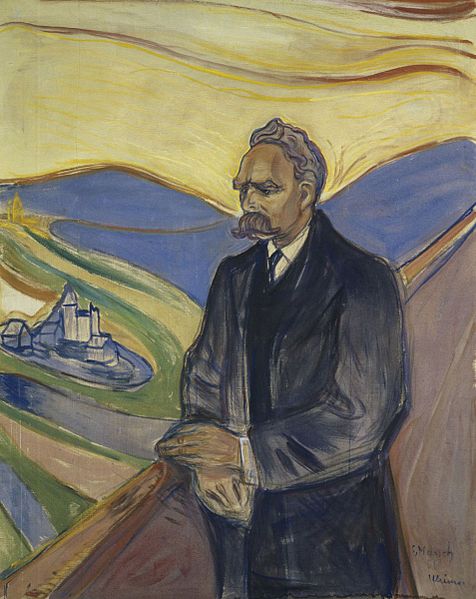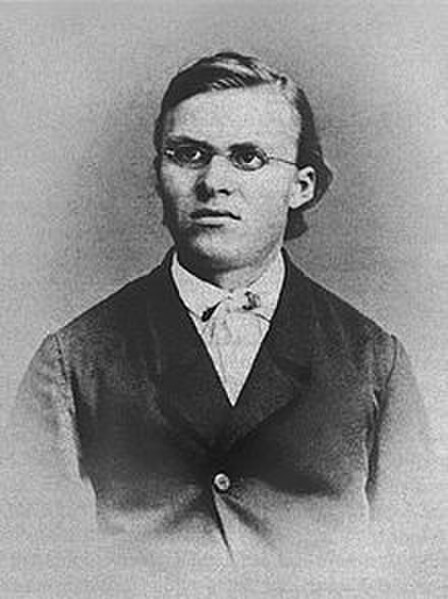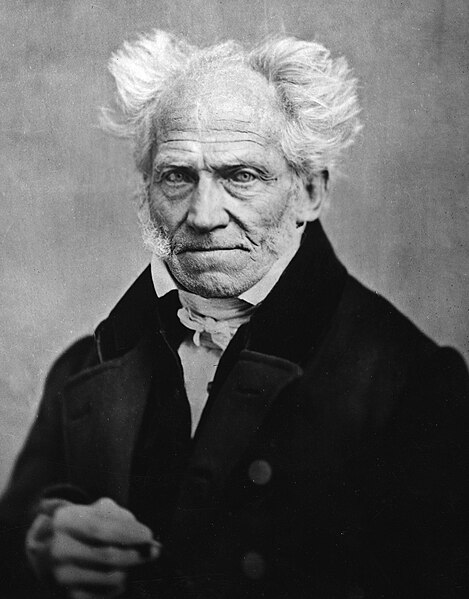Thus Spoke Zarathustra: A Book for All and None, also translated as Thus Spake Zarathustra, is a work of philosophical fiction written by German philosopher Friedrich Nietzsche; it was published in four volumes between 1883 and 1885. The protagonist is nominally the historical Zoroaster.
Title page of the first three-book edition
Nietzsche wrote in Ecce Homo that the central idea of Zarathustra occurred to him by a "pyramidal block of stone" on the shores of Lake Silvaplana.
Nietzsche's first note on the "eternal recurrence", written "at the beginning of August 1881 in Sils-Maria, 6000 ft above sea level and much higher above all human regards! -" Nachlass, notebook M III 1, p. 53.
Friedrich Nietzsche, Edvard Munch, 1906
Friedrich Wilhelm Nietzsche was a German philosopher. He began his career as a classical philologist before turning to philosophy. He became the youngest person to hold the Chair of Classical Philology at the University of Basel in 1869 at the age of 24, but resigned in 1879 due to health problems that plagued him most of his life; he completed much of his core writing in the following decade. In 1889, at age 44, he suffered a collapse and afterward a complete loss of his mental faculties, with paralysis and probably vascular dementia. He lived his remaining years in the care of his mother until her death in 1897 and then with his sister Elisabeth Förster-Nietzsche. Nietzsche died in 1900, after experiencing pneumonia and multiple strokes.
Nietzsche in Basel, Switzerland, c. 1875
Young Nietzsche, 1861
Young Nietzsche
Arthur Schopenhauer strongly influenced Nietzsche's philosophical thought.








